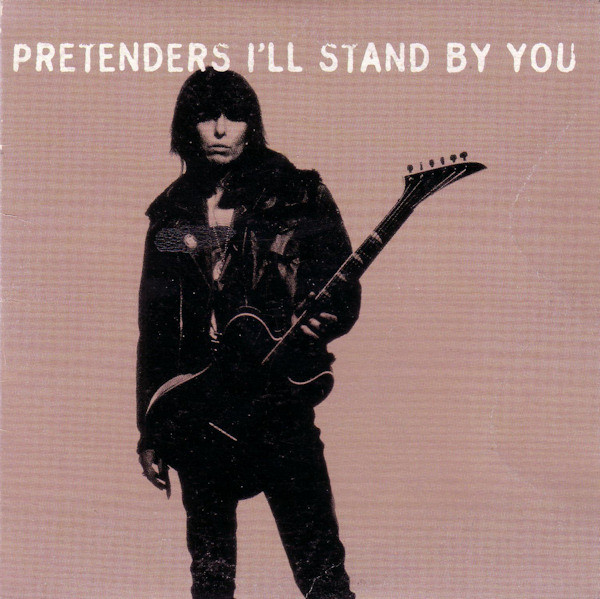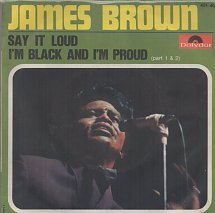Cypress Hill’s B-Real was born Louis Mario Freese on this date in 1970. Hear some Cypress Hill on today’s playlist.
Follow Tunes Du Jour on Facebook
Follow Tunes Du Jour on Twitter
Follow me on Instagram
Although 1989 may not have been a groundbreaking year for popular music, it bestowed upon us an array of iconic hits spanning diverse genres. Take, for instance, The B-52’s infectious “Love Shack,” with its quirky lyrics and irresistible beat that whisked revelers away to a neon-lit haven of love and laughter. Meanwhile, Neneh Cherry’s “Buffalo Stance” effortlessly blended hip-hop beats and funk, showcasing Cherry’s distinct rap-singing style and exuding an aura of boldness and unapologetic confidence.
On a more introspective note, The Cure’s “Lovesong” captured the poignant ache of love’s longing through haunting melodies and Robert Smith’s plaintive vocals. In contrast, Paula Abdul’s “Straight Up” emerged as a pop gem, infusing catchy hooks with Abdul’s signature sassy charm. Public Enemy’s “Fight the Power” thundered onto the scene as a resounding anthem against social injustice, urging listeners to question authority and demand change.
Meanwhile, De La Soul’s “Me, Myself And I” provided a playful yet insightful commentary on self-identity and individuality, solidifying their status as pioneers of alternative rap. Pixies’ “Debaser” shattered musical conventions with its raw energy, while N.W.A’s “Express Yourself” defiantly resonated with those embracing authenticity. Enya’s “Orinoco Flow” whisked us away on Celtic winds, and Young M.C.’s “Bust A Move” had us grooving to its playful rap verses.
Then there were the soulful strains of Guns N’ Roses’ “Patience,” revealing a softer side to the rock rebels, and Madonna’s “Like a Prayer,” a fusion of pop sensibility with gospel-infused vocals that pushed boundaries. Fine Young Cannibals’ “She Drives Me Crazy” pulsated with infectious energy, blending pop, new wave, and soul, while Prince’s “Batdance” defied genres with its blend of funk, rock, and pop flamboyance. Meanwhile, Nirvana’s “About a Girl” hinted at the seismic shift the band would bring to the music industry.
Reflecting on the music of 1989, we’re reminded of its enduring legacy and profound impact on contemporary music. Each song in this playlist serves as a time capsule, transporting us to a moment when music had the power to unite, inspire, and ignite imaginations. So let’s press play and embark on a journey through the sonic landscape of 1989, where every note resonates with the magic of music.
Follow Tunes du Jour on Facebook
Follow Tunes du Jour on Twitter
Follow me on Instagram
Dr. Dre is one of the most influential figures in hip-hop history. As a rapper, producer, and entrepreneur, he has shaped the sound and culture of rap music for over three decades. He is also a philanthropist who has donated millions of dollars to various causes, especially in the fields of arts, technology, and education. However, he is not without controversy, as he has faced accusations of misogyny and violence against women throughout his career. In this blog post, we will explore the achievements and challenges of Dr. Dre, and how his music reflects his life story.
Dr. Dre was born Andre Romelle Young in 1965 in Compton, California, a city notorious for its gang violence and poverty. He began his musical career as a DJ and a member of the electro group World Class Wreckin’ Cru in the early 1980s. He then joined forces with Eazy-E, Ice Cube, MC Ren, and DJ Yella to form N.W.A, a group that pioneered what became known as gangsta rap and brought the realities of the streets to the mainstream. Their second album, Straight Outta Compton (1988), was a landmark in hip-hop, featuring songs like “Fuck tha Police,” “Express Yourself,” and the title track, which showcased Dre’s production skills and the group’s raw and rebellious lyrics.
However, N.W.A soon fell apart due to internal conflicts and legal disputes. Dre left the group and co-founded Death Row Records with Suge Knight in 1991. He released his solo debut album, The Chronic, in 1992, which introduced the G-funk style, a subgenre of rap that used heavy samples of funk music, synthesizers, and melodic hooks. The album was a huge success, spawning hits like “Nuthin’ but a ‘G’ Thang,” “Let Me Ride,” and “Dre Day.” It also featured the debut of Snoop Doggy Dogg, who became one of Dre’s most frequent collaborators and protégés.
In 1996, Dre left Death Row Records after a violent incident with Knight and founded his own label, Aftermath Entertainment. He faced some initial setbacks, as his first compilation album, Dr. Dre Presents: The Aftermath, received mixed reviews and sales. However, he bounced back in 1999 with his second solo album, 2001, which was another commercial and critical hit. The album featured songs like “Still D.R.E.”, “Forgot About Dre,” and “The Next Episode,” which reaffirmed Dre’s status as a rap icon.
Dre also established himself as a prolific and influential producer, working with artists such as Eminem, 50 Cent, The Game, Kendrick Lamar, and many others. He helped launch the careers of some of the biggest names in rap, and earned multiple Grammy Awards and accolades for his production work. He also expanded his business ventures, co-founding Beats Electronics, a company that produces headphones, speakers, and streaming services. In 2014, he sold the company to Apple for $3 billion, making him one of the richest and most powerful figures in the music industry.
Despite his success and fame, Dre has also faced criticism and controversy for his treatment of women. He has been accused of assaulting and abusing several women, including his former girlfriend Michel’le, TV host Dee Barnes, and rapper Tairrie B. He has also been called out for his misogynistic lyrics, which often degrade and objectify women. Some of his songs, such as “Bitches Ain’t Shit,” have been seen as glorifying violence and rape against women.
Dre has apologized for his past actions and expressed regret for his mistakes. He has also tried to distance himself from his violent and sexist image, and focus on his positive contributions to society. He has donated millions of dollars to various causes, such as the USC Jimmy Iovine and Andre Young Academy for Arts, Technology and the Business of Innovation, which he co-founded with music executive Jimmy Iovine in 2013. The academy aims to foster creativity and innovation among students from diverse backgrounds and disciplines. He has also supported other initiatives, such as the Compton High School Performing Arts Center, the Global Fund, and the Michael J. Fox Foundation.
Dr. Dre is a complex and controversial figure, who has both inspired and offended millions of people with his music and actions. He is a rap legend, a musical genius, and a business mogul, who has changed the course of hip-hop and popular culture. He is also a flawed human being, who has made mistakes and hurt others, and has supposedly tried to atone for his sins. He is a man behind the beats, who has a story to tell, and a legacy to leave behind. Today’s playlist consists of 30 examples of his best work, either as a rapper, producer, writer, or some combination thereof.
Follow Tunes du Jour on Facebook
Follow Tunes du Jour on Twitter
Follow me on Instagram
Today’s playlist celebrates the September 7 birthdays of The Crickets’ Buddy Holly, Pretenders’ Chrissie Hynde, Air’s Jean-Benoît Dunckel, Chic’s Alfa Anderson, N.W.A’s Eazy-E, Gloria Gaynor, Owen Pallett, Starland Vocal Band’s Margot Chapman, Morris Albert, Latimore, Jermaine Stewart, and The Simpsons’ Julie Kavner; and the September 8 birthdays of The Cars’ Benjamin Orr, Patsy Cline, Neko Case, ’til tuesday’s Aimee Mann, P!nk, Bob & Earl’s Earl Nelson,The Beau Brummels’ Sal Valentino, Wiz Khalifa, Slim Thug, and Peter Sellers.
Follow Tunes du Jour on Facebook
Follow Tunes du Jour on Twitter
Follow me on Instagram

Inspired by the September 7 birthdays of Pretenders‘ Chrissie Hynde, Buddy Holly, Chic‘s Alfa Anderson, Gloria Gaynor, Air’s Jean-Benoît Dunckel, N.W.A.’s Eazy-E, Jermaine Stewart, Owen Pallett and Starland Vocal Band’s Margot Chapman.

In 1979, President Jimmy Carter declared June Black Music Month. In 2016, President Barack Obama, who recognized the month as African-American Music Appreciation Month, said the music of African-American artists helped the country “to dance, to express our faith through song, to march against injustice, and to defend our country’s enduring promise of freedom and opportunity for all.” Today’s Tunes du Jour playlist embodies that sentiment.
(The Spotify embed function is not working.)
Click here to like Tunes du Jour on Facebook.
Follow me on Twitter.
Follow me on Instagram.
Today Tunes du Jour celebrates the birthday of Beastie Boy Mike D. Originally a hardcore punk band, the Beastie Boys evolved into one of the most influential and longest-running hip hop groups.
Our playlist begins with “The New Style,” which hit the r&b chart a month prior to the Beasties hitting the pop chart with their breakout hit, “(You Gotta) Fight for Your Right (To Party!!!).” Both tracks appear on their debut album Licensed To Ill, which the Village Voice favorably reviewed under the headline “Three Jerks Make a Masterpiece.” The album came out in 1986, the year after the group opened for Madonna on The Virgin Tour, and was practically glued to my turntable. I didn’t think they’d be able to top such a perfect record.
Through the years they continued to surprise and innovate. Enjoy this playlist consisting of a handful of Beastie Boys tracks along with other hip hop favorites.